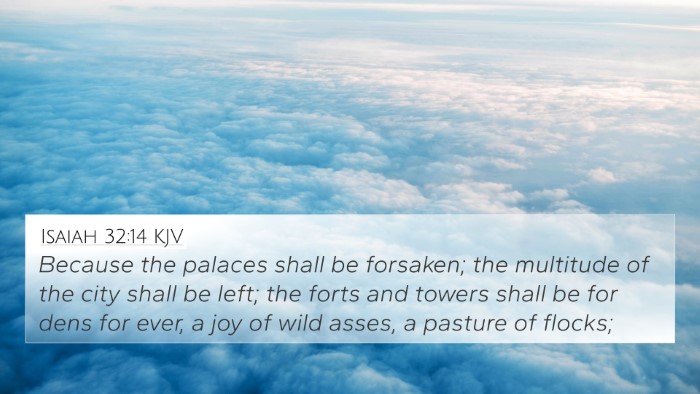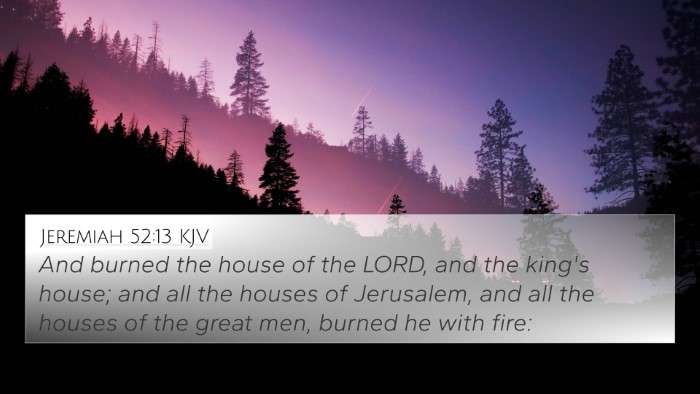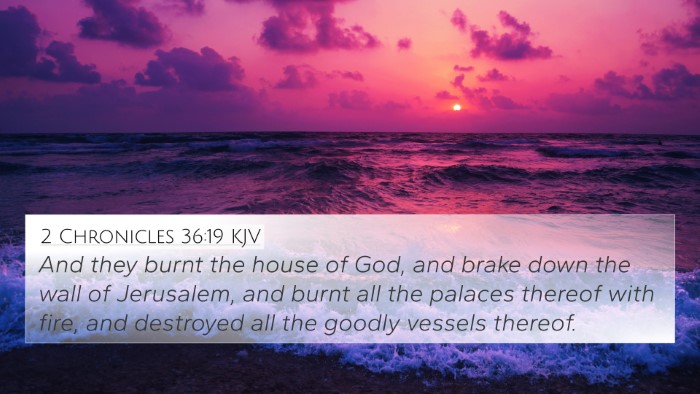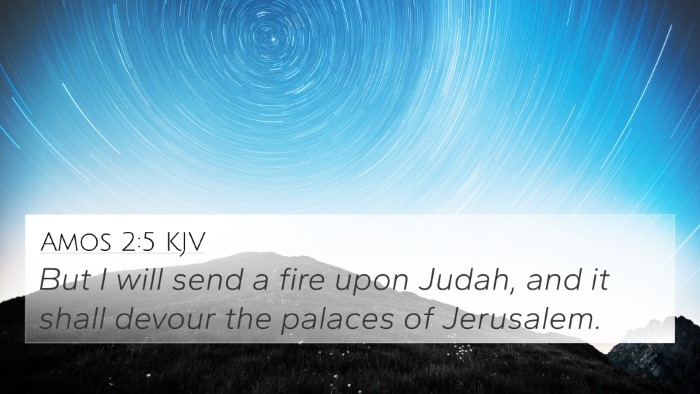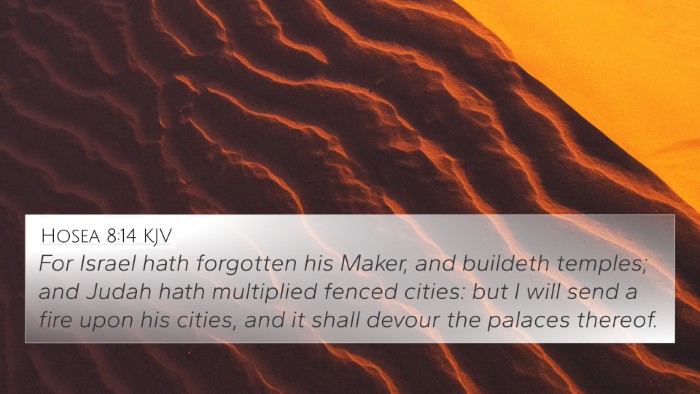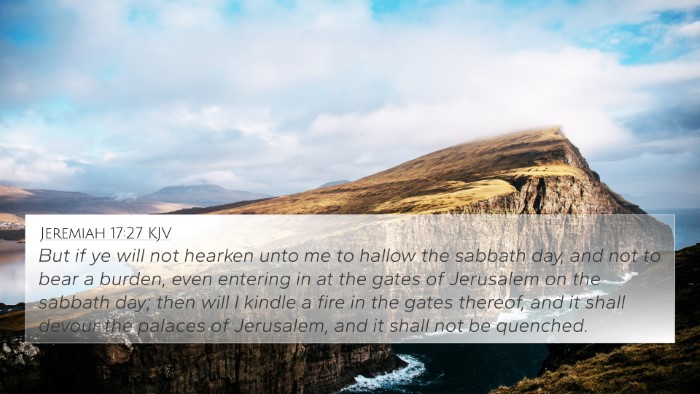Understanding Jeremiah 6:5
Jeremiah 6:5 states:
“Arise, and let us go by night, and let us destroy her palaces.”
This verse is a call to action against the city of Jerusalem and symbolizes the urgency and threat of impending destruction. Below, we will explore insights from renowned public domain commentaries to deepen our understanding of this scripture.
Overview of Jeremiah 6:5
Jeremiah, known as the weeping prophet, delivers a message of warning to the people of Judah, urging them to recognize their sinful ways and the coming judgement. The contextual backdrop of this verse reflects a tumultuous period for Jerusalem, highlighting the spiritual decay of the nation.
Commentary Insights
Various commentaries provide rich interpretations of the verse:
-
Matthew Henry:
Henry emphasizes the prophetic nature of Jeremiah's call, illustrating the desperation and moral decline faced by Judah. The call to "arise" implies a need for action; it reflects how the people of God must recognize their situation and mobilize for change.
-
Albert Barnes:
Barnes interprets this verse as a prophetic warning from God concerning the coming Babylonian invasion. He notes, "by night" signifies the secrecy and surprise of the attack. Jerusalem's palaces symbolize its pride and reliance on earthly power, which would be brought low.
-
Adam Clarke:
Clarke highlights the coalition of enemies seeking to destroy the pride of Jerusalem. He suggests that this act underscores the divine judgment as a response to persistent sin and rebellion against God.
Cross-References and Thematic Connections
To fully grasp the implications of Jeremiah 6:5, we can examine several related scriptures. Here are notable cross-references that illuminate the themes of judgment, destruction, and the need for repentance:
- Lamentations 2:2: "The Lord has consumed without pity all the habitations of Jacob..." - This verse reflects the desolation of Jerusalem, akin to the intent outlined in Jeremiah 6:5.
- Ezekiel 21:24: "Therefore thus says the Lord God: Because you have made your guilt to be remembered..." - This points to the consequences of sin that resulted in destruction.
- Isaiah 1:7: "Your country lies desolate; your cities are burned with fire..." - A parallel in terms of divine judgement impacting the physical and spiritual realms of Judah.
- Micah 3:12: "Therefore because of you, Zion shall be plowed as a field..." - This speaks to the inevitable destruction coming as a result of sin.
- Matthew 24:2: "But he answered them, 'You see all these, do you not? Truly, I say to you, there will not be left here one stone upon another that will not be thrown down.'" - This verse echoes the prophetic significance of judgment seen in Jeremiah's words.
- Habakkuk 1:6: "For behold, I am raising up the Chaldeans, that bitter and hasty nation..." - This builds upon the theme of God's sovereignty in using nations as instruments of judgement.
- Revelation 18:8: "For this reason her plagues will come in a single day, death and mourning and famine..." - This reflects a pattern of divine retribution for turning from God's ways.
Theological Reflections
Jeremiah 6:5 serves not only as a historical account but also as a timeless reminder of the consequences of forsaking faithfulness to God. The urgency encapsulated in the phrase "arise, and let us go by night" illustrates the need for believers to remain vigilant and responsive to God's call for restoration, particularly during challenging times.
Conclusion
As we reflect on Jeremiah 6:5, it is crucial to consider how this verse interacts with broader biblical themes of judgment, repentance, and renewal. Utilizing tools for cross-referencing such as concordances can enrich the understanding of how different Bible verses connect and support one another in their messages.
Through comparative Bible verse analysis, believers can cultivate a deeper understanding of God's Word and its implications, ultimately leading to a more profound spiritual awakening and commitment to righteousness.



